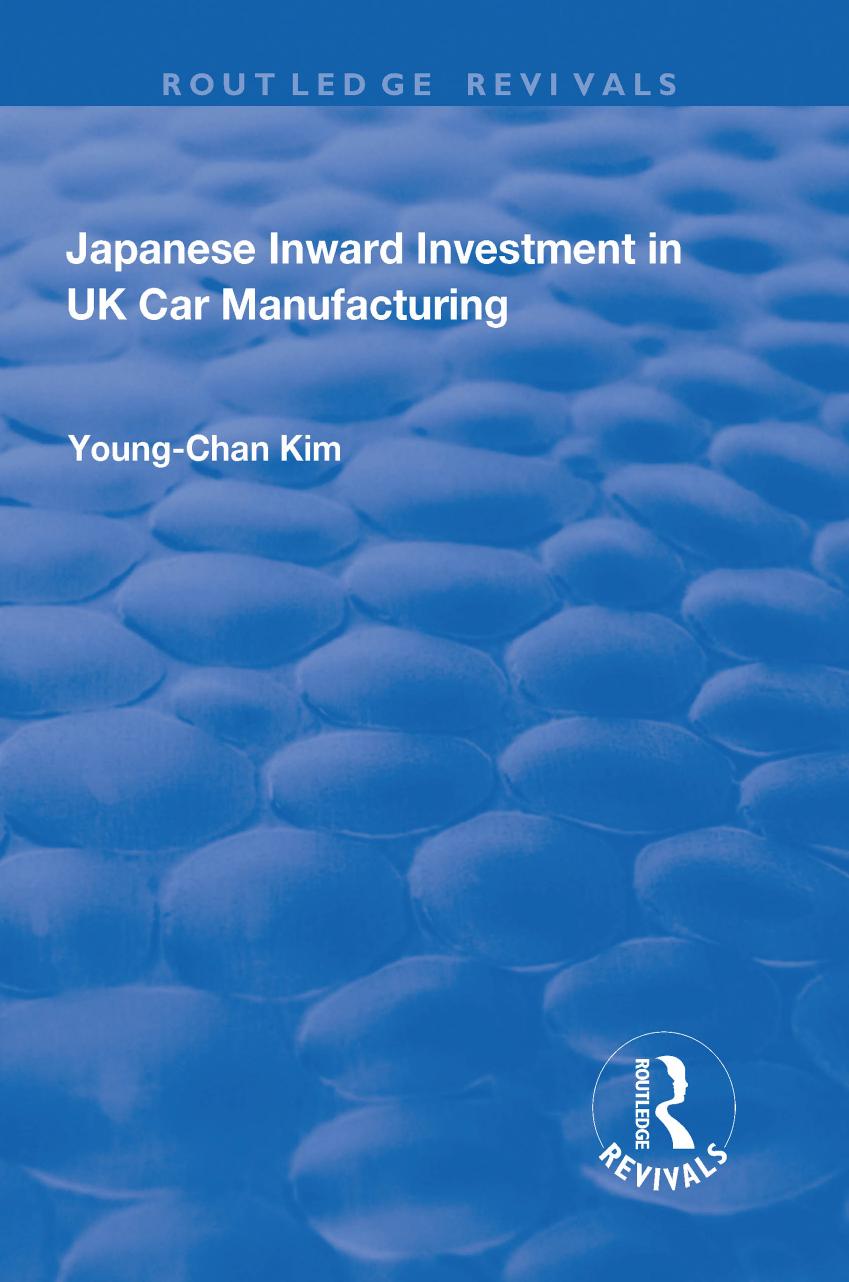Japanese Inward Investment in UK Car Manufacturing by Young-Chan Kim

Author:Young-Chan Kim
Language: eng
Format: epub, pdf
Publisher: Taylor & Francis (CAM)
Published: 2002-03-03T16:00:00+00:00
Conclusion
British management, since 1945, in all manufacturing sectors proved inept, and weak in leading its workforce, which served only to worsen the other great causes of lagging British productivity. There were continual industrial actions, mostly wildcat, and go-slows. Moreover, there was a near universal tendency to shorten shifts and lengthen breaks at both ends. These kinds of ‘British disease’ became notorious in the 1960s and 1970. The leading industrial actors were the car manufacturing and coal mining sectors.
One of the main problems, since the mid-1960s, is that there have been too few engineers, who can compete with other Western manufacturers. The Wilson government’s employment scheme was mainly concerned with employment policy not with the education of the workforce. Hence the car industry was regarded as one of the weakly-skilled manufacturing sectors in Britain. The general approach of trade unions was that ‘the first overriding responsibility of all trade unions is to the welfare of their members. That is their primary commitment, not to a firm, not to an industry, not to the nation. A union reflects its members’ contributions and demands their loyalty specifically for the purpose of protecting their interests as they often see them, not their alleged ‘true’ or ‘best’ interests as defined by others.52
This trend in car manufacturing had more critical consequences. The industrial damage from the strong trade unions since the war, was noted by Dunnett:
There were several consequences of the unsatisfactory fragmented labour relations system on motor industry conduct and performance. First, it meant considerable resources and effort were wasted on labour relations problems which might better have been applied elsewhere. Secondly, poor labour relations tended to discourage research and innovation. Every time new methods and techniques were introduced into production they created a hazard for labour relations, and therefore the innovation of new research was slowed … Thirdly, the existence and attitudes of the unions affected employment stability in the industry. The existence of unions meant the firms had to make greater efforts to avoid redundancies than before the war, so encouraging better production planning but also labour hoarding in times of weak demand. Finally, the labour relations system as it existed after the war had negative effects on the balance of payments: whenever the system broke down and strikes occurred exports were lost.53
One of the more severe weaknesses in British car-makers was the lack of mutual understanding between managers and shop stewards. The relation between employers and employees was made clear by Professor Gaetano Cortesi, the Chairman of Alfa-Romeo, who observed that:
a well-managed, profitable company that could afford to pay wages would solve most of its industrial relations problems. But even in the ideal company there will be differences of opinion between workers and management. We examine later how mutual understanding of problems can help to avoid resentment crystallising into strike action. Once such action has been taken, however, speed is the conditioning factors. The aim must be to resolve a dispute before attitudes become entrenched, bitterness is engendered, and the problem become still more difficult.
Download
Japanese Inward Investment in UK Car Manufacturing by Young-Chan Kim.pdf
This site does not store any files on its server. We only index and link to content provided by other sites. Please contact the content providers to delete copyright contents if any and email us, we'll remove relevant links or contents immediately.
Zero to IPO: Over $1 Trillion of Actionable Advice from the World's Most Successful Entrepreneurs by Frederic Kerrest(4527)
Machine Learning at Scale with H2O by Gregory Keys | David Whiting(4295)
Never by Ken Follett(3937)
Harry Potter and the Goblet Of Fire by J.K. Rowling(3848)
Ogilvy on Advertising by David Ogilvy(3607)
Shadow of Night by Deborah Harkness(3361)
The Man Who Died Twice by Richard Osman(3072)
Book of Life by Deborah Harkness(2932)
The Tipping Point by Malcolm Gladwell(2914)
Will by Will Smith(2911)
0041152001443424520 .pdf by Unknown(2843)
Purple Hibiscus by Chimamanda Ngozi Adichie(2827)
My Brilliant Friend by Elena Ferrante(2824)
How Proust Can Change Your Life by Alain De Botton(2807)
How to Pay Zero Taxes, 2018 by Jeff A. Schnepper(2646)
Hooked: A Dark, Contemporary Romance (Never After Series) by Emily McIntire(2550)
Rationality by Steven Pinker(2352)
Can't Hurt Me: Master Your Mind and Defy the Odds - Clean Edition by David Goggins(2324)
Borders by unknow(2304)
